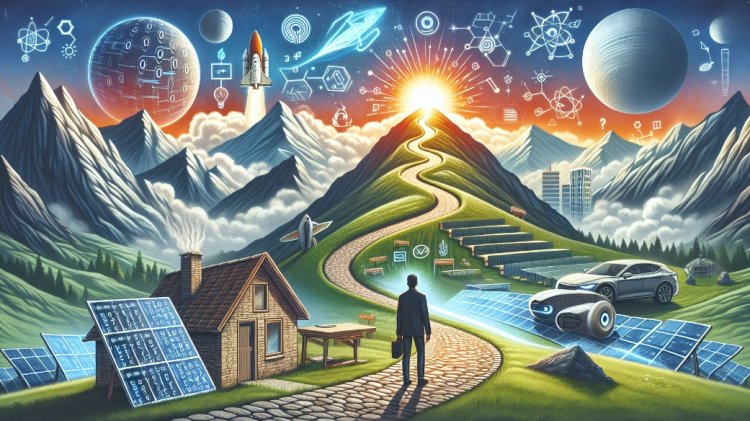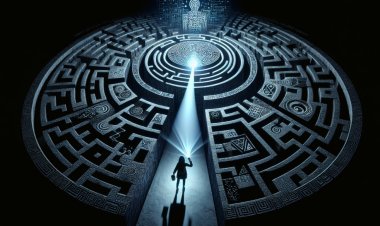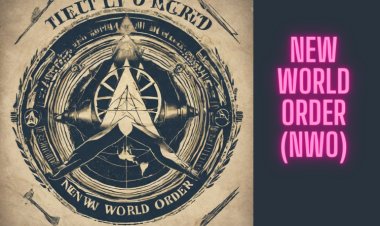The Extraordinary Journey of Elon Musk: From Obsession with Computers to Becoming the Richest Man in the World
Uncover the secrets behind Elon Musk's meteoric rise to billionaire status. Explore his innovative ventures, calculated risks, and relentless drive to shape the future.

Introduction
Elon Musk's incredible journey is a testament to his discipline and intelligence. From a young age, Musk showed a deep fascination with computers and the universe. He started programming at just 9 years old and sold his first video game by the age of 12. Movies like "2001: A Space Odyssey" stoked Musk's passion for space exploration and gave him the inspiration to pursue his aspiration of going into space.
Despite facing challenges throughout his youth, including bullying and a difficult social life, Musk's determination never wavered. He immigrated to the United States from Canada and attended the University of Pennsylvania, where he pursued degrees in physics and economics. However, Musk dropped out of college to pursue entrepreneurial opportunities.
In 1995, Musk founded his first company, Zip2, an internet-based venture that provided searchable web directories to newspapers. Despite facing initial challenges, Zip2 eventually gained attention from venture capitalists and was sold for $307 million in 1999. This success paved the way for Musk's next venture, x.com, an online financial services company that later merged with Confinity to create PayPal.
With the funds from the sale of PayPal, Musk turned his attention to his childhood dream of exploring space. In 2002, he founded SpaceX, a private aerospace manufacturer and space transportation company. SpaceX became the first private company to send a spacecraft to the International Space Station and has since become a leader in the space industry, revolutionizing rocket technology and making space travel more accessible.
In addition to SpaceX, Musk also became involved in other groundbreaking ventures. He played a pivotal role in the success of Tesla, an electric car company that has become a major player in the automotive industry. Musk's vision and leadership have propelled Tesla to become one of the most valuable companies in the world.
Musk's passion for renewable energy led him to co-found SolarCity, a solar energy services company that provides sustainable energy solutions to customers worldwide. He also founded The Boring Company, which aims to revolutionize transportation through the construction of underground tunnels. Furthermore, Musk has made strides in the field of neuroscience with Neuralink, a company focused on developing implantable brain chips to address brain diseases and enhance human capabilities.
Despite his immense success, Musk remains committed to his vision and continues to push boundaries. His investments in OpenAI and x.ai reflect his dedication to advancing artificial intelligence while ensuring its safety and responsible development. Recently, Musk made headlines with his acquisition of Twitter, intending to turn it into a platform for freedom of expression.
Elon Musk's journey is a testament to his unwavering determination, innovative thinking, and relentless pursuit of his dreams. His accomplishments have not only revolutionized multiple industries but have also inspired countless individuals to dream bigger and strive for greatness.
Early Life and Passion for Space
Elon Musk's journey to becoming the richest man in the world and a pioneer in various industries is rooted in his early life and his passion for space exploration. Born in Pretoria, South Africa, on June 28th, 1971, Musk grew up in a prosperous household with parents who valued education and entrepreneurship.
Birth and Upbringing in South Africa
Musk's parents, Errol Musk and Maye Haldeman, were both successful in their respective fields. His father was an engineer and real estate developer, while his mother worked as a nutritionist and model. Musk and his two siblings had a comfortable upbringing, with ample opportunities to pursue their interests.
Early Fascination with Computers and Space
From a young age, Musk showed a keen interest in computers and space. At the age of 9, he began programming on a Commodore Vic 20, and by 10, he had already learned to program. Musk's first video game, called Blaster, was a space-themed game that he sold to a South African magazine when he was just 12 years old.
Musk's fascination with space was further fueled by movies like "2001: A Space Odyssey" and books about space exploration. He would spend hours gazing at the stars and dreaming of one day traveling to space himself.
Inspiration from movies and books
Movies and books played a significant role in shaping Musk's passion for space. The film "2001: A Space Odyssey" captivated his imagination and inspired him to dream bigger. Musk's love for science fiction and the possibilities of space travel motivated him to pursue his dreams and make them a reality.
Bullying and the Decision to Immigrate to the US
Musk's journey to success was not without its challenges. In school, he faced bullying and mistreatment from his classmates. To escape this difficult social environment and pursue his dreams, Musk made the decision to immigrate to the United States from Canada.
Knowing that it would be easier to immigrate from Canada, Musk applied for a Canadian passport through his mother. While waiting for the documentation, he attended the University of Pretoria for five months to avoid mandatory military service in South Africa. After completing his primary education, Musk moved to Canada and later transferred to the University of Pennsylvania in the United States.
Despite facing obstacles and adversity, Musk's determination to pursue his passion for space and technology never wavered. His experiences in South Africa and the decision to immigrate to the US ultimately shaped his extraordinary journey and set the stage for his remarkable achievements.
Entrepreneurial Beginnings with Zip2
Elon Musk's journey as an entrepreneur began with the founding of his first company, Zip2, in 1995. Zip2 was an internet-based venture that provided searchable web directories to newspapers. Musk saw the potential of searchable web directories as a valuable online service, and together with his brother Kimbal, he began devising strategies to seize this emerging opportunity.
Starting a company is never easy, and Musk faced numerous challenges with Zip2. The small businesses they approached were uninterested in the service, and even venture capitalists were slow to comprehend its potential. To overcome these challenges, Musk and Kimbal had to bootstrap the company using their own funds, which were scarce at the time. With only $22,000 in his bank account, Musk relied on his determination and resourcefulness to keep the company afloat.
Despite the initial hurdles, Zip2 eventually gained attention from venture capitalists. In 1996, David O Ventures invested $3 million in the company, allowing for its growth and expansion. Under the leadership of CEO Rich Soren, Zip2 transitioned from a local to a national focus, providing a platform for newspapers to create their own local directory services.
Zip2's success continued to grow, and major media companies like The New York Times, Chicago Tribune, and Knight Ridder partnered with the company. This national focus and major partnerships propelled Zip2's value, leading to its sale to Compaq in 1999 for $307 million. From this sale, Elon Musk received approximately $22 million, marking a significant financial success.
The sale of Zip2 not only provided Musk with financial success but also paved the way for his future ventures. With the funds from the sale, Musk turned his attention to his childhood dream of exploring space and went on to found SpaceX in 2002. The entrepreneurial beginnings with Zip2 laid the foundation for Musk's remarkable journey as an innovative and visionary entrepreneur.
Founding X.com and the Birth of PayPal
In 1999, Elon Musk founded X.com, an online financial services company. Musk's vision was to create an online bank that was more efficient and accessible than traditional banks. X.com offers a variety of financial services, including online payments, money transfers, and loans. Musk hired experienced professionals, including investment banker John Story and former Int Corp. CEO Bill Harris, to help build and grow the company.
X.com quickly gained popularity and became one of the most popular online payment services in the world. However, in 2000, X.com merged with Confinity, a San Francisco-based financial services company, to create PayPal. The merger was a natural fit, as X.com had a large customer base but lacked the necessary security technology, while Confinity had the necessary security technology but lacked a large customer base to scale.
With Musk's leadership and the combined strengths of X.com and Confinity, PayPal became the market leader in online payments. The company revolutionized the way people send and receive money online, making it faster, easier, and more secure. PayPal's success was further solidified when it was acquired by eBay in 2002 for $1.5 billion.
The financial impact of PayPal's sale on Elon Musk was significant. At the time of the sale, Musk owned an 11.7% stake in PayPal, which amounted to approximately $180 million. This financial success provided Musk with the resources he needed to pursue his next venture, SpaceX, and fulfill his childhood dream of exploring space.
SpaceX: Making Space Exploration a Reality
Elon Musk's dream of exploring space has become a reality with the founding of SpaceX. Space-related movies and books like "2001: A Space Odyssey" sparked Musk's interest in space exploration at a young age. His determination to pursue his dream led him to establish SpaceX in 2002, a private aerospace manufacturer and space transportation company.
Founding of SpaceX and Early Challenges
Starting a space company from scratch was no easy task for Musk. He faced numerous challenges, including securing funding and developing the technology required for space travel. Musk invested $100 million from the sale of his PayPal stocks to kickstart SpaceX and provide employees with two years' worth of salary.
Despite initial setbacks, including failed rocket launches and technical difficulties, Musk's unwavering determination and belief in the potential of SpaceX kept the company moving forward. One of the major breakthroughs came in 2008 when SpaceX successfully launched the Falcon 1 rocket into orbit.
Successes, Contracts with NASA, and Advancements in Space Technology
SpaceX quickly gained recognition for its groundbreaking achievements in the space industry. In 2010, the company became the first private company to send a spacecraft, the Dragon, to the International Space Station (ISS). This marked a significant milestone in space exploration, as it demonstrated the viability of a commercial space transportation system.
In the following years, SpaceX secured contracts with NASA, further solidifying its position as a key player in the space industry. The contracts allowed SpaceX to transport supplies and cargo to the ISS and paved the way for future collaborations with NASA.
SpaceX's advancements in rocket technology have been revolutionary. The company's focus on reusable rockets has drastically reduced the cost of space travel and made it more accessible. SpaceX's Falcon 9 rocket, with its ability to land and be reused, has revolutionized the industry and set a new standard for efficiency and sustainability in space transportation.
Current Achievements and Future Goals
SpaceX's achievements continue to mount. The company has successfully launched numerous satellites into space, deployed the Starlink satellite constellation to provide global internet coverage, and conducted missions to study Earth's climate and monitor the health of our planet.
Looking to the future, SpaceX has ambitious goals. Musk envisions sending humans to Mars, establishing a self-sustaining colony on the red planet, and ultimately making humanity a multi-planetary species. The company is actively developing the Starship spacecraft, a fully reusable vehicle designed for crewed missions to Mars and other destinations in the solar system.
SpaceX's relentless pursuit of innovation and its commitment to pushing the boundaries of space exploration have made Musk's childhood dream a reality. Through SpaceX, Musk has not only revolutionised rocket technology but has also inspired a new generation of space enthusiasts and laid the foundation for a future where humans can explore and inhabit other planets.
Tesla, Inc.: Revolutionising the Electric Car Industry
Elon Musk's vision and leadership have propelled Tesla to become one of the most valuable companies in the world, revolutionizing the electric car industry. Musk's investment in Tesla has transformed the automotive landscape and set a new standard for sustainable transportation.
Investment in Tesla and the Vision for Electric Cars
In 2004, Elon Musk became interested in Tesla, a startup with a prototype of an electric car. Recognizing the potential of electric vehicles, Musk decided to invest $70 million in the company. His ambitious vision was to make Tesla the world leader in electric cars.
Musk believed that electric cars could revolutionize the automotive industry by providing environmentally friendly and high-performance alternatives to traditional gasoline-powered vehicles. His investment in Tesla marked the beginning of a new era for electric cars.
Development of Luxury and Affordable Models
To make electric cars more accessible to consumers, Musk focused on developing luxury and affordable models. In 2008, Tesla introduced the Tesla Roadster, a high-performance electric sports car. While the Roadster was expensive, it appealed to wealthy consumers who were willing to invest in sustainable transportation.
Building on the success of the Roadster, Tesla launched the Model S in 2012. This electric sedan offered impressive performance, cutting-edge technology, and a more affordable price point compared to the Roadster. The Model S was an immediate commercial success and helped Tesla raise the funds it needed to continue its growth.
In 2015, Tesla introduced the Model X, an electric SUV with advanced features and a longer range. This model appealed to consumers looking for a spacious, environmentally friendly SUV. In 2017, Tesla unveiled the Model 3, an affordable electric sedan designed for the mass market. The Model 3's competitive pricing and impressive range made electric cars more accessible to a wider range of consumers.
Financial Challenges and Success during the 2008 Financial Crisis
Tesla faced significant financial challenges during the 2008 financial crisis. The global recession caused consumers to be more hesitant about spending money on new cars. However, Elon Musk knew that Tesla needed to do something to survive.
Musk's strategy was to produce a luxury car that would appeal to wealthy consumers even during a recession. The Tesla Roadster, with its impressive performance and sustainability, attracted affluent consumers who were willing to invest in a new car. The Roadster's success provided Tesla with the funds it needed to weather the financial crisis.
Expansion, Gigafactories, and Future Plans
Since its early days, Tesla has experienced rapid expansion and has become a major player in the automotive industry. The company's success has allowed it to establish giga factories, which produce lithium-ion batteries essential for electric vehicles.
Musk's vision for Tesla extends beyond electric cars. The company aims to provide sustainable energy solutions to customers worldwide. Tesla's acquisition of SolarCity, a solar energy services company, has further solidified its position in the renewable energy sector.
Looking to the future, Tesla continues to innovate and develop new models. The highly anticipated Cybertruck, an electric pickup truck, is set to disrupt the automotive market with its unique design and advanced features. Additionally, Tesla is exploring new technologies, such as autonomous driving and battery advancements, to further enhance the performance and accessibility of electric cars.
Tesla's unwavering commitment to sustainable transportation and its relentless pursuit of innovation has revolutionised the electric car industry. Elon Musk's vision and leadership have positioned Tesla as a global leader in the automotive and renewable energy sectors.
SolarCity: Harnessing the Power of Solar Energy
Elon Musk co-founded SolarCity, a company that provides solar energy services and has significantly impacted the renewable energy sector. Through its innovative solutions, SolarCity has helped customers worldwide transition to sustainable energy sources, reducing their carbon footprint and dependence on fossil fuels.
Background and Acquisition by Tesla
Peter and Lyndon Rive, who are brothers, founded SolarCity in 2006. The business aimed to use solar energy to fight climate change and lower energy costs as a result of Elon Musk's suggestion. Musk, who served as the chairman, helped kickstart the company and provided guidance throughout its early stages.
For $2.6 billion, Musk's other company, Tesla, acquired SolarCity in 2016. This acquisition allowed SolarCity to leverage Tesla's technology and financial resources, accelerating its growth and expansion in the solar energy industry.
Rapid Growth and Expansion in the Solar Energy Industry
Since its inception, SolarCity has experienced rapid growth and expansion. The company quickly established itself as a leading installer of residential solar systems in the United States, providing homeowners with access to clean and renewable energy sources.
With the acquisition by Tesla, SolarCity expanded its operations, opening offices in multiple states across the United States. It also acquired other solar energy companies, further solidifying its position in the industry.
Impact of Tesla's Technology and Resources
Tesla's acquisition of SolarCity has had a significant impact on the solar energy industry. SolarCity gained access to Tesla's advanced technology and expertise in battery storage, enhancing its offerings and making solar energy more reliable and accessible to customers.
Tesla's Gigafactories, which produce lithium-ion batteries essential for electric vehicles, have also benefited SolarCity. The availability of these batteries has allowed SolarCity to offer energy storage solutions to its customers, enabling them to store excess energy generated by their solar panels.
Current market position and achievements
Today, SolarCity is one of the leading providers of solar energy worldwide. The company has installed over 2 million solar panels, generating approximately 870 MW of solar power. Its installations represent a significant portion of non-utility solar installations in the United States.
SolarCity's achievements extend beyond installations. The company has played a crucial role in promoting the adoption of solar energy and raising awareness about the importance of sustainability. By offering affordable and reliable solar solutions, SolarCity has helped customers save money on their energy bills while reducing their environmental impact.
Through its continued innovation and commitment to sustainable energy, SolarCity is driving the transition to a cleaner and more sustainable future. Elon Musk's vision and leadership have positioned SolarCity as a key player in the renewable energy sector, inspiring other companies and individuals to embrace solar energy and make a positive impact on the planet.
The Boring Company: Revolutionising Tunnel Infrastructure
The Boring Company is one of Elon Musk's groundbreaking ventures that aims to revolutionize transportation through the construction of underground tunnels. Inspired by the traffic congestion in Los Angeles and the perceived limitations of the two-dimensional transportation network, Musk founded The Boring Company in 2016.
Inspiration behind the Boring Company
Musk's frustration with traffic congestion in Los Angeles was a major inspiration for The Boring Company. He believed that traditional transportation systems were limited in their capacity and efficiency and that a new approach was needed to alleviate congestion and improve transportation infrastructure.
Development of Tunnel Boring Machines and Operational Tunnels
The Boring Company has developed its own tunnel boring machines (TBMs) to increase tunneling speed and make the creation of a tunnel network financially viable. These TBMs are designed to be faster and more efficient than traditional machines, allowing for the rapid construction of tunnels.
The company has conducted various tests and successfully built operational tunnels in Hawthorne, California. These tunnels connect SpaceX facilities in Hawthorne with an electric vehicle charging station. The company has also completed a tunnel in Las Vegas, which connects the Las Vegas Convention Centre with the city center.
Current Projects and Future Plans
The Boring Company has several ongoing projects, including a tunnel under development in Chicago that will connect downtown Chicago with O'Hare International Airport. This project is expected to be completed in 2025 and will significantly reduce travel time between the two locations.
Additionally, The Boring Company has plans to construct a tunnel in London that will connect Central London with Heathrow Airport. This project is set to begin construction in 2024 and will provide a faster and more efficient transportation option for commuters and travelers.
Through its innovative approach to tunnel construction, The Boring Company aims to revolutionize transportation infrastructure by creating a network of underground tunnels that can alleviate traffic congestion and provide faster and more efficient transportation options. With its ongoing projects and future plans, The Boring Company is set to make a significant impact on the way we travel.
Neuralink: Exploring the Frontiers of Brain-Computer Interfaces
Neuralink, founded by Elon Musk in 2016, is a company dedicated to pushing the boundaries of brain-computer interfaces. The foundation of Neuralink lies in its mission to develop devices that can address severe brain diseases and ultimately enhance human capabilities.
The foundation and goals of Neuralink
Neuralink aims to create a symbiotic relationship between humans and artificial intelligence, inspired by the concept of a "neural lace" from science fiction. The company envisions a future where a digital layer can be implanted in the brain, providing individuals with enhanced cognitive abilities and the ability to interact with technology directly through their thoughts.
Advancements in implantable brain chips and wireless communication systems
One of the key areas of focus for Neuralink is the development of implantable brain chips. These chips are designed to be smaller, safer, and easier to implant than previous devices. They enable the recording and stimulation of brain activity, allowing for the treatment of severe brain diseases and the restoration of lost capabilities.
In addition, Neuralink has made significant advancements in wireless communication systems that enable the brain chip to transmit data to an external computer. This wireless communication system allows for the analysis of brain activity and the control of electronic devices, opening up a world of possibilities for individuals with neurological conditions or disabilities.
Human trials and potential applications
Neuralink has conducted human trials to test the effectiveness of their implantable brain chips. These trials have focused on individuals with tetraplegia, a condition that affects the ability to move both upper and lower limbs. The results have been promising, with participants able to control electronic devices and experience improvements in their quality of life.
Looking forward, Neuralink sees a wide range of potential applications for their technology. Beyond treating brain diseases, the company envisions a future where brain-computer interfaces can enhance cognitive abilities, enable telepathic communication, and even facilitate the merging of human consciousness with artificial intelligence.
Neuralink's work represents a significant step forward in the field of neuroscience and has the potential to revolutionize the way we interact with technology and understand the human brain. As the company continues to push the boundaries of brain-computer interfaces, the possibilities for human enhancement and the treatment of neurological conditions are truly extraordinary.
OpenAI and XAI: Shaping the Future of Artificial Intelligence
Elon Musk's involvement with OpenAI has been instrumental in shaping the future of artificial intelligence. While he did not directly find OpenAI, Musk invested $1 billion in the organization in 2015. OpenAI was founded with the mission to ensure that artificial intelligence develops safely and responsibly.
Foundation of XAI and focus on explainable AI
Although Musk left the board of directors and sold his shares in OpenAI in 2018 due to differences with the founders, he has recently expressed regret for leaving. As a result, Musk decided to found his own company, XAI (Explainable Artificial Intelligence), to focus on the development of explainable AI technologies.
XAI aims to create AI systems that humans can understand and trust. The focus is on building transparency and interpretability into machine learning algorithms, allowing users to have a clear understanding of how AI algorithms make decisions.
Alignment with the original mission of OpenAI
Musk's new venture, XAI, aligns with the original mission of OpenAI to ensure the safe and responsible development of artificial intelligence. By focusing on explainable AI, XAI aims to address one of the key challenges in the AI field: the lack of transparency and interpretability in AI systems.
It is crucial to have AI systems that humans can understand and trust given the increasing adoption of AI technologies across various industries. This is especially important in sensitive domains such as healthcare, finance, and autonomous driving, where the decisions made by AI systems have a significant impact on human lives.
By investing in OpenAI and founding XAI, Elon Musk continues to demonstrate his dedication to advancing artificial intelligence while ensuring its safety and responsible development. His vision for explainable AI and commitment to transparency in AI systems will play a crucial role in shaping the future of artificial intelligence.
Twitter Acquisition and the Fight for Freedom of Expression
In April 2022, Elon Musk made headlines with his offer to buy Twitter for $44 billion. Musk's intention was to turn the platform into a platform for freedom of expression, providing users with a space to express their thoughts and opinions without censorship or limitations. Despite initial rejection from Twitter's board, Musk's offer was eventually accepted after he threatened to launch a hostile bid.
Changes Implemented After the Acquisition
Once the acquisition was completed on October 28, 2022, Musk wasted no time in implementing changes to Twitter. Several high-level executives, including CEO Parag Agrawal, were dismissed, and a new content moderation team was established. This team's primary focus is on ensuring freedom of expression and allowing users to freely express their thoughts and opinions on the platform.
Additionally, Musk made controversial decisions, such as charging for verified badges, which are often seen as a symbol of credibility on the platform. This move aimed to ensure that verification was accessible to all users and not limited to influential or high-profile individuals.
Controversial Decisions and Their Impact on Freedom of Expression
While Musk's acquisition of Twitter and the changes implemented have been met with mixed reactions, there is no denying the impact it has had on the fight for freedom of expression. By prioritizing freedom of expression and establishing a content moderation team focused on this principle, Musk is striving to create an environment on Twitter where users can freely express their opinions without fear of censorship or restrictions.
However, these controversial decisions have also sparked debates and discussions. Some argue that charging for verified badges and releasing internal documents highlighting censorship and political manipulation on the platform may have unintended consequences. Critics believe that these actions could potentially enable the spread of misinformation and hate speech.
Ultimately, the acquisition of Twitter by Elon Musk and the subsequent changes implemented highlights the ongoing battle for freedom of expression in the digital age. It remains to be seen how these changes will shape the future of Twitter and its role in facilitating open and unrestricted communication.
Conclusion
Elon Musk's remarkable journey is a testament to his unwavering determination, innovative thinking, and relentless pursuit of his dreams. From his early fascination with computers and space to become the richest person in the world, Musk's achievements have revolutionised multiple industries and inspired countless individuals to dream bigger and strive for greatness.
Summary of Elon Musk's remarkable achievements:
-
Founder of Zip2, an internet-based venture that provided searchable web directories to newspapers.
-
Co-founder of x.com, an online financial services company that later merged with Confinity to create PayPal.
-
Founder of SpaceX, a private aerospace manufacturer and space transportation company that has become a leader in the space industry.
-
Pivotal role in the success of Tesla, an electric car company that has revolutionised the automotive industry.
-
Co-founder of SolarCity, a solar energy services company that provides sustainable energy solutions to customers worldwide.
-
Founder of The Boring Company, which aims to revolutionize transportation through the construction of underground tunnels.
-
Founder of Neuralink, a company focused on developing implantable brain chips to address brain diseases and enhance human capabilities.
-
Investments in OpenAI and X.AI reflect his dedication to advancing artificial intelligence while ensuring its safety and responsible development.
-
Acquisition of Twitter, to turn it into a platform for freedom of expression.
Furthermore, Musk's recognition as the richest person in the world is a testament to the value and impact of his ventures. His disciplined approach, innovative thinking, and ability to push boundaries have propelled him to the forefront of multiple industries.
Elon Musk's journey serves as an inspiration for individuals around the world, encouraging them to dream big, work hard, and never give up on their aspirations. His achievements have not only transformed industries but also paved the way for a future filled with innovation, sustainability, and limitless possibilities.



 admin
admin 










